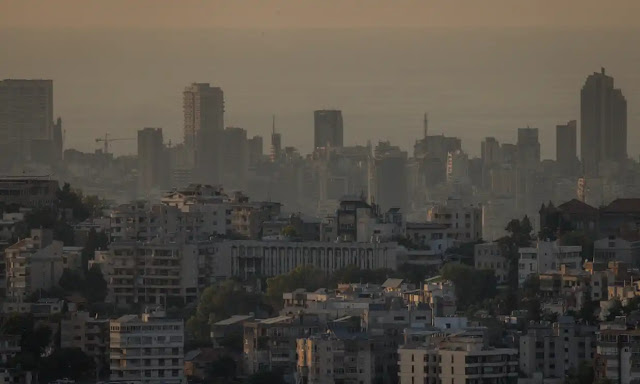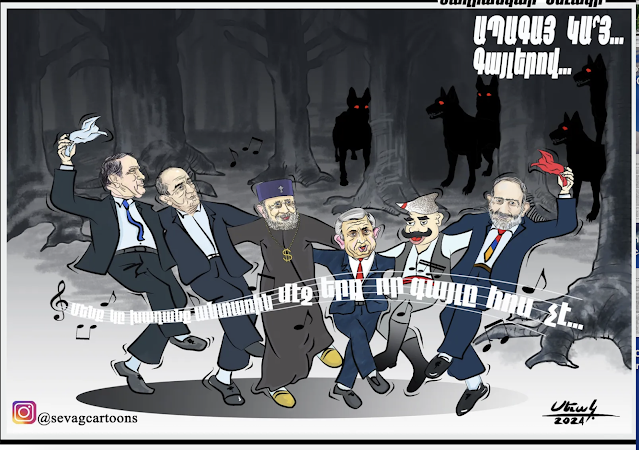“Heavenly Kessab” is my 2013 translation of one of the stories from Zaven Khanjian’s book, titled “Aleppo, First Station”. The translated story first appeared on the online journal Keghart.com in February 2013. Zaven Khanjian was a friend to the Kessabtsis and over the years shouldered communal responsibilities with many of them in Los Angeles. Vahe H Apelian
While our homes and schools in Haleb were each a small spiritual Armenia, Kessab, on the other hand, was for us the only tangible, tasteful, huggable, historic and ancestral Armenian soil. Let Kessabtsis remain assured that we lay no territorial claim when we state that Kessab was our Armenia as well. This Armenian speaking, breathing and heart-beating northeastern Syrian corner was the magnet for our summer vacation; a most beautiful mountainous resort comprised of its namesake main village, Kessab, and surrounded by the Armenian inhabited, Armenian speaking but Turkish named villages.
In those days the inhabitants of Kessab were few. They thus became the close acquaintances of those who visited Kessab, especially when visiting the same village summer after summer and especially when both the visitors and the locals were members of the same denomination. Keurkune first, followed by Ekiz-Olough and then Kessab became the summer long camping centers for the youth of the Armenian Evangelical Christian Endeavor -Chanits.
Resting at the foot of a hill, the center for our summer vacation in Keurkune was a stone walled one storied building whose doors and windows remained without panels. It was not only the mountain winds that breezed through it, but also our childhood curiosity that took wing and fired our imagination as to what possibly could lay behind that hill. In time we discovered, to our disappointment, that what lay behind the hill was the dirt road that snaked through keurkune and Ekiz-Olough.
We then wondered what lay further away?
In time we grew taller and with the passing years we climbed to the highest peak of Kessab, that of Mount Silderan. Many a time we passed by the icy waters of Chalma’s spring and its majestic chestnut tree and gazed with wander the vast expanse of the blue water of the Mediterranean Sea. It was way too early for us then to ponder what lay beyond the blue waters and be drawn by the deceptive allure of the Western Civilization.
My contemporaries and I owe a lot to Kessab. In that mountainous and borderless environment, one attempts to soar with eagles. The pine trees there proudly stand tall, sky high. The apples, the figs, the wild berries you come across at every pace taste heavenly in Kessab. It is there when you experience freedom unadulterated by human constrictions and feel closer to the Heavenly Father and come to worship both the Creator and the Creation and exalt God in the highest with an unyielding earnest to live free.
Kessabtis are a happy bunch, even though Kessab was not spared from the destructive and annihilating policies of the Young Turks. The surviving Kessabtis returned to their homes and stayed there. Where else west of Mount Massis1 has an Armenian enclave continued to embrace the descendants of the House of Torkom2 for longer? Aside west of Massis, which other Armenian enclave has had the good fortune to continue living on its ancestral soil for longer? Kessabtsis were salvaged because somewhere, somehow, someone – a blessed creature – whether an official of the Ottoman Empire or of the Colonial French mistakenly drew the line that left Kessab inside Syria. The latter in turn embraced it with a sincere welcome and assured its safety. Nowadays Kessabtsis are more of immigrants than native, more of them live outside than inside Kessab. They are more scattered worldwide than congregated in their native enclave. However, all these changes have come about out of free will choices and not due to any persecution, threat, or forced displacement.
There was a time when the Kessabtsis toiled the land and were more of villagers. They left their pickaxes, shovels and scoops in favor of tilling medical, academic and spiritual fields. These days the Kessabtsis are more of medical practitioners, educators, and spiritual shepherds.
We loved Kessab and Kessab in turn loved us. Our summer long sojourn there inevitably led to that mutual bond. The summer long church related meetings concluded with the traditional bonfire when the whole village would congregate around the vacationing young men and women to attend the comedy presentations the young vacationers prepared for the villagers as a gesture of good will.
Nature had endowed Ekiz-Olough with an open-air theater in the center of the village where we fashioned the stage with sheets, ropes and wooden poles. Armenag was the brainchild behind the improvised theatrical stage, while Raffi Charkhudian, Azad Mesrobian, Zadour Khatchadourian and I attempted to remain true to the characters of the plays we portrayed whether it was in “կիկո “ (Gego), “Շողոքորթը“ (The Flatterer), “Քաղաքավարութեան Վնասները“ (The Perils of Politeness). With rare exceptions, all the villagers attended and enjoyed the zenith of our summer long cultural endeavor. The younger vacationers in turn remained captivated by the performance of their elder campers.
 |
| Inside cover of Zavan Khanjian's book "Aleppo First Station" |
We, in turn, loved the Kessabtsi. We loved the Kessabtis for their unassuming and modest characters worthy to those brought up in nature, for their pure hearts akin to the clean waters of their springs, for their steel like character much like the boulders of their rocky terrain, for their perennial quest much like their ever-green pine trees. We loved the Kesssabtsis for the labor they bore much like their fruit bearing trees, for their resiliency worthy to those who are brave, for their quest to reach the sky much like their mountains. How could we have not loved?
Still, Kessab became the impetus that gave maturity to our maturing young bodies.
It is there, in Kessab that
We experienced nature at its virgin best for the very first time.
We experienced Armenian village for the very first time.
We visited Armenia for the very first time.
We met our Creator for the very first time.
And for the very first time during these meetings I met a vivacious, vibracious, a beautiful girl full of life and zest who would give meaning to my life and one day be the mother of my children.
How could I not love Kessab?
***
Notes:
1.Armenians refer to Mount Ararat as Mount Massis as well and refer to twin peaked mountain and Big Massis (Medtz Massis) and Little Massis (Bzdeg Massis).
2.House of Torkom is an expression for the Armenian race.












